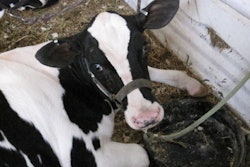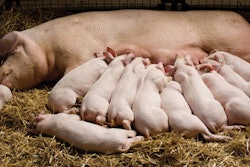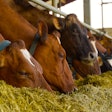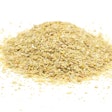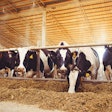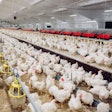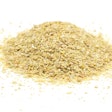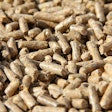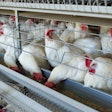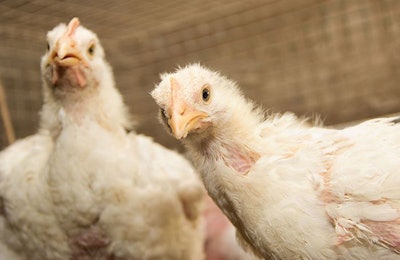
Nutritional intervention measures to be considered as part of a broader solution
Necrotic enteritis (acute or chronic enterotoxemia) remains a perennial problem that has been made worse due to the removal of antibiotics from broiler diets. Nutrition intervention measures can play a significant but rather supplementary role. The focus remains on preventing gut pathogenic bacterial growth and boosting overall gut health. The following six tips aim for these outcomes.
-
Cereal choice
Feeds rich in wheat aid the growth and colonization of clostridia that is implicated with necrotic enteritis. The problem is less severe when wheat is roller milled, as opposed to being hammer milled. The whole issue is most likely related increased digesta viscosity. Adding a wheat-specific enzyme or reducing wheat inclusion level below 25% may help.
-
Reformulation frequency
Nutritionists are always looking to reduce feed cost, especially when alternative ingredients at enticing prices are made available. Abrupt and drastic changes to feed formulas may unbalance the established gut microbiota which, in turn, may allow certain pathogens, including clostridia, to proliferate and damage the gut epithelium causing necrotic enteritis.
-
Lipid oxidation
Rancid fatty acids, which may be found at discounted prices, are known to damage the microvilli structure of the gut epithelium. This allows microbes, such as clostridia, to colonize the gut easier, making the onset of necrotic enteritis more certain.
-
Soybean meal quality
It is known that urease destroys gut mucus that prevents free radicals (from rancid lipids) and toxins (from bacteria and molds) from penetrating and damaging the epithelium, allowing pathogenic bacteria to colonize there more easily.
-
Organic acids
Certain organic acids reduce the growth of pathogenic bacteria and even the growth of mycotoxin-producing molds. A healthy gut microbiota will always antagonize the pathogenic strains, reducing their chances for proliferation and colonization.
-
Protein levels
It has been reported that, in cases of severe necrotic enteritis, removal of fish meal, and/or reduction of dietary protein concentration can be beneficial. This is probably related to depriving bacteria from excess dietary protein that is used for their growth.



